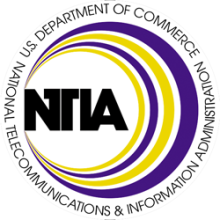Image


The broadband funding will result in vastly improved Internet speeds for local government offices, schools, hospitals, and emergency communication networks across Maryland, officials said. More than 1,200 miles of new fiber-optic cable will be installed across Maryland — a 50 percent increase over the existing network capability, officials said. … The money will be used to link 458 schools, 44 libraries, 262 police and emergency centers, 15 community colleges, six universities and 221 other government and community centers in a statewide network designed to be available and secure in emergencies.As the networks are built with funds from the broadband stimulus, the networks will not be silo'ed, as is too often the case with public networks built primarily to connect community institutions. These networks will be available for the private sector to lease as well, creating more opportunities for broadband expansion and future competition. However, the track record of these middle mile networks creating last-mile connections is extremely poor. So let's not get too carried away, but it is a good step in the direction of local self-reliance and less of a dependency on massive absentee companies. Credit goes to Howard County's Ira Levy, who worked for more than a year to put the project together.
Much of the money — about $72 million dedicated to the 10 jurisdictions in Central Maryland — will be administered by Howard County. It was Howard's information systems director, Ira Levy, who spent 18 months leading the effort to get the money.Baltimore County has announced an $18.5 million plan to better connect their community institutions as part of the larger project.
Baltimore County unveiled an $18.5 million plan Wednesday that officials said will vastly improve the local Internet system, provide quicker links among public safety agencies, schools, hospitals and libraries, and enhance connections to statewide networks.Local governments that are leasing connections are almost certainly throwing public money away. Communities should be responsible and build the networks they need rather than overpaying for incumbent connections.
